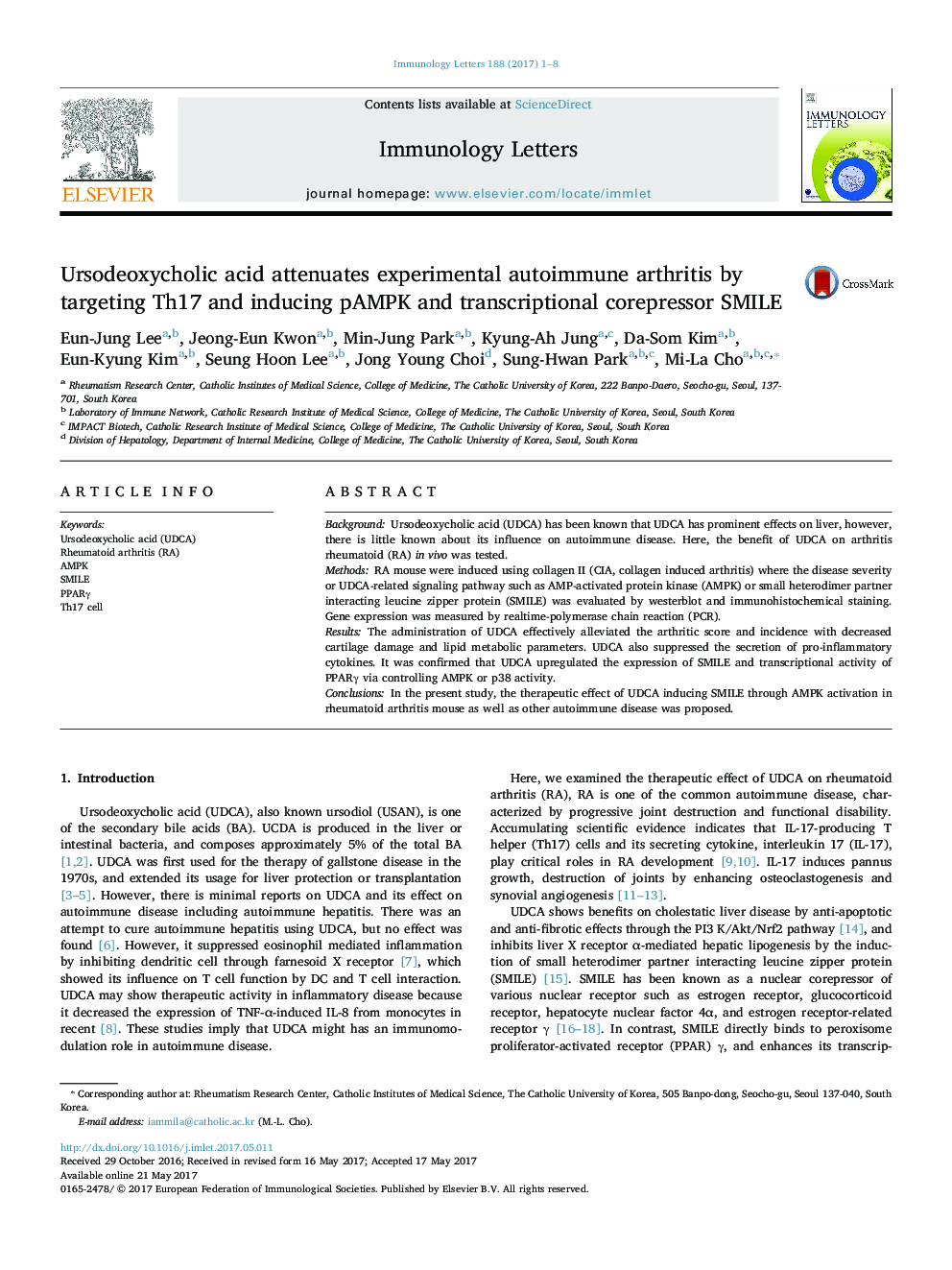| Article ID | Journal | Published Year | Pages | File Type |
|---|---|---|---|---|
| 5666715 | Immunology Letters | 2017 | 8 Pages |
â¢Ursodeoxycholic acid (UDCA) reveals therapeutic effect in animal model for rheumatoid arthritis.â¢UDCA induced the activation of AMP-activated protein kinase (AMPK) and p38 in mouse CD4+ T cells.â¢UDCA suppressed T helper (Th)17 differentiation through upregulation of small heterodimer partner interacting leucine zipper protein (SMILE) and transcriptional activity of peroxisome proliferator-activated receptor (PPAR)γ.
BackgroundUrsodeoxycholic acid (UDCA) has been known that UDCA has prominent effects on liver, however, there is little known about its influence on autoimmune disease. Here, the benefit of UDCA on arthritis rheumatoid (RA) in vivo was tested.MethodsRA mouse were induced using collagen II (CIA, collagen induced arthritis) where the disease severity or UDCA-related signaling pathway such as AMP-activated protein kinase (AMPK) or small heterodimer partner interacting leucine zipper protein (SMILE) was evaluated by westerblot and immunohistochemical staining. Gene expression was measured by realtime-polymerase chain reaction (PCR).ResultsThe administration of UDCA effectively alleviated the arthritic score and incidence with decreased cartilage damage and lipid metabolic parameters. UDCA also suppressed the secretion of pro-inflammatory cytokines. It was confirmed that UDCA upregulated the expression of SMILE and transcriptional activity of PPARγ via controlling AMPK or p38 activity.ConclusionsIn the present study, the therapeutic effect of UDCA inducing SMILE through AMPK activation in rheumatoid arthritis mouse as well as other autoimmune disease was proposed.
